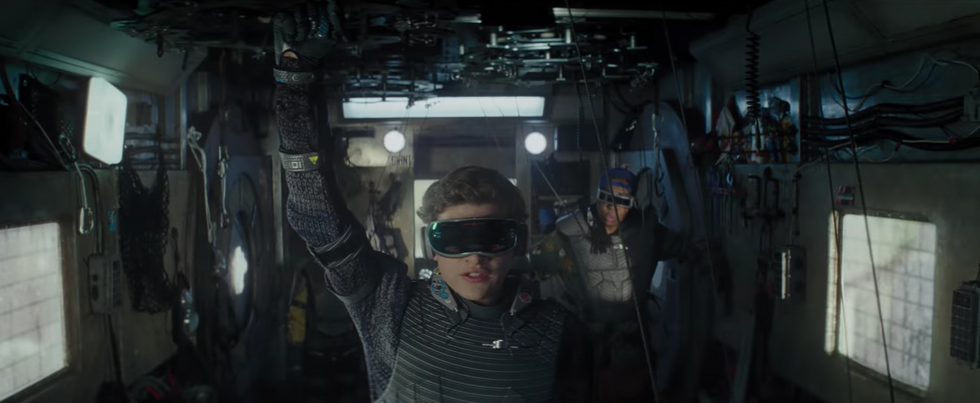Ever asked someone what they thought of a novel adaptation, and they say, "The book was SO much better than the movie," and wondered why?
Well, I certainly have, and while this can be the case sometimes, I feel these adaptations aren't given a fair shake.
I love Harry Potter. I love Ready Player One. I love a lot of books that were made into movies. However, even though I love the adaptations, I see more and more people becoming increasingly annoyed with the unfaithfulness to certain aspects of the source material.
What I think some fail to understand is that there are fundamental differences between film and print that force filmmakers to make certain creative decisions relating to the writing, visuals, and general filmmaking process. I feel like, as a hardcore fan of a particular book, you can’t just walk into the theater expecting a full, one-to-one replication of the book.
One thing that we have to remember is that novels such as any in the Harry Potter series are anywhere from 300-900 pages. Obviously, details are going to be left out and decisions made with characters are going to be changed to keep the relevance of the story.
For example, in Harry Potter and the Order of the Phoenix, the book tells us that one of Cho Chang’s friends gave up the information about Dumbledore’s Army via Veritaserum, but in the film, the writers decided to simply just make Cho responsible.
Obviously, in a book as detailed and thought out as Order, it’s quite acceptable to make a minor, smaller character responsible for such an important plot point, but in a 150-minute film, larger characters need to initiate narrative altering events. It’s the little changes about plot details and events that force differences between the movie and its original source material.
Ready Player One was a blockbuster that was released a few months back and was looking to have a hugely successful release among fans of video games, film, and the source material. I loved the book as it included all my favorite licensed video game characters, as well as some cool movie and pop-culture references.
However, I knew that this would be a problem upon the crafting of the film. The narrative was changed dramatically and only a small amount of the licensed characters in the book transferred to the movie. I knew this was going to be a necessary sacrifice as there was simply no way to incorporate all the licenses into the film. This, in turn, changed the narrative immensely. There was simply no real way to make a completely faithful version.
Still, I enjoyed the movie for what it was.
The problem with book adaptations is that they’re often compared too much to their source material instead of being viewed solely as a movie. Some classic, excellent films were loosely based off books, such as Psycho.
Not many people know that Psycho was originally based on a book but was dramatically altered for the screen. The novel was much more gruesome and grotesque than the actual film, but this made for a more relatable story that wasn’t as much about the murder as it was about the psychology. Without the fundamental changes made by Hitchcock in adapting the original novel, viewers wouldn’t have gotten the big screen classic
In conclusion, I feel that movies made from books should simply be seen as movies. They’re not shot-for-shot remakes of books. What would be the fun in that? When you’re walking into the theater see the film based on your favorite book, don’t expect a perfect replication. Instead, expect a fun, live-action ride that displays the same struggles that the novel presents.






























